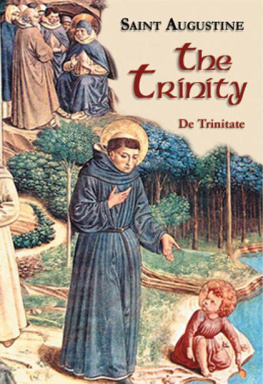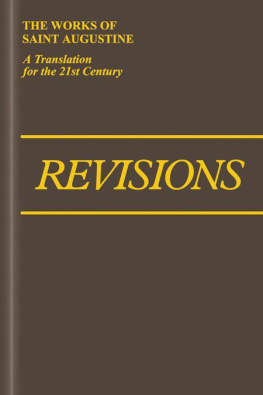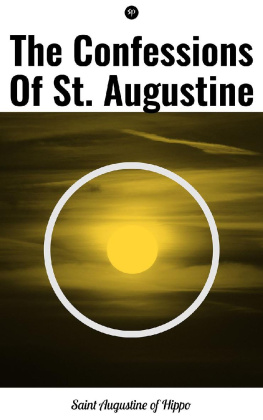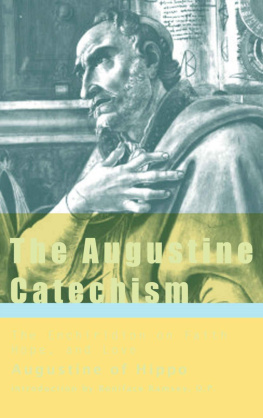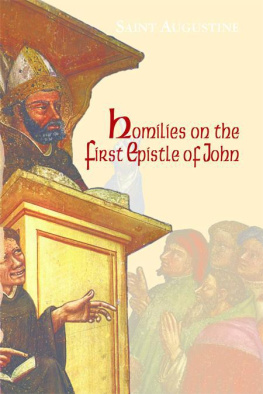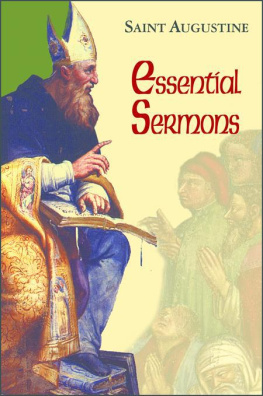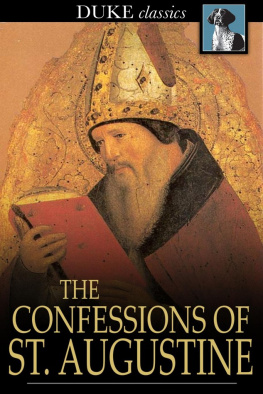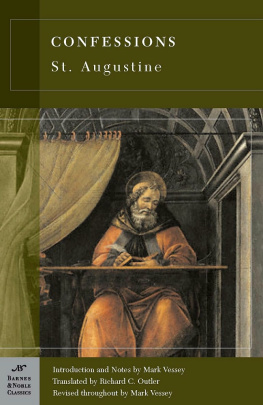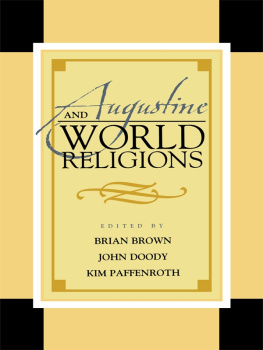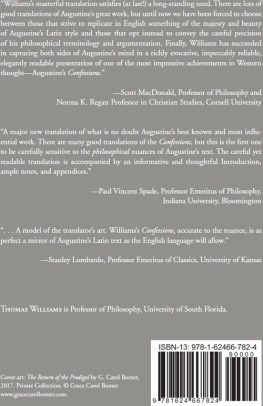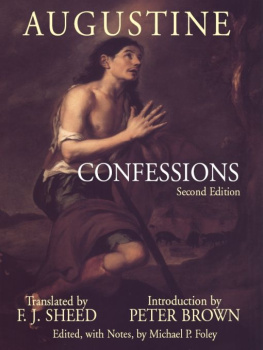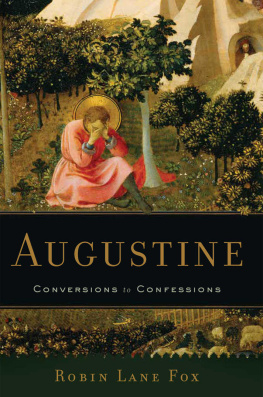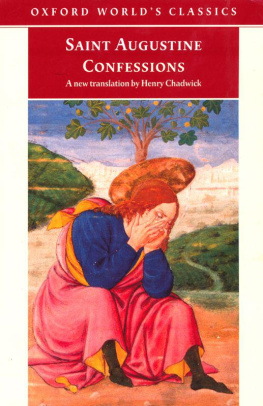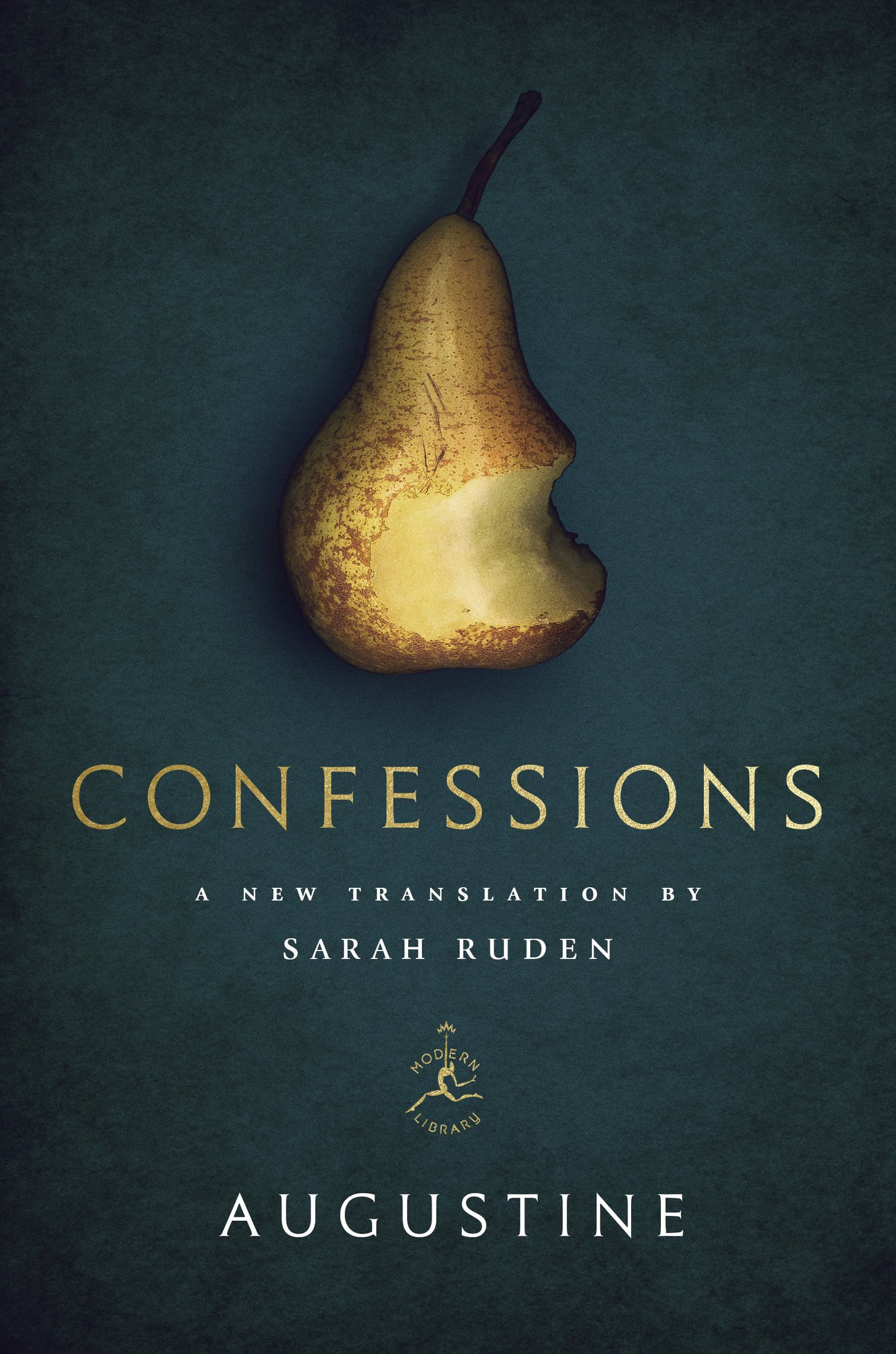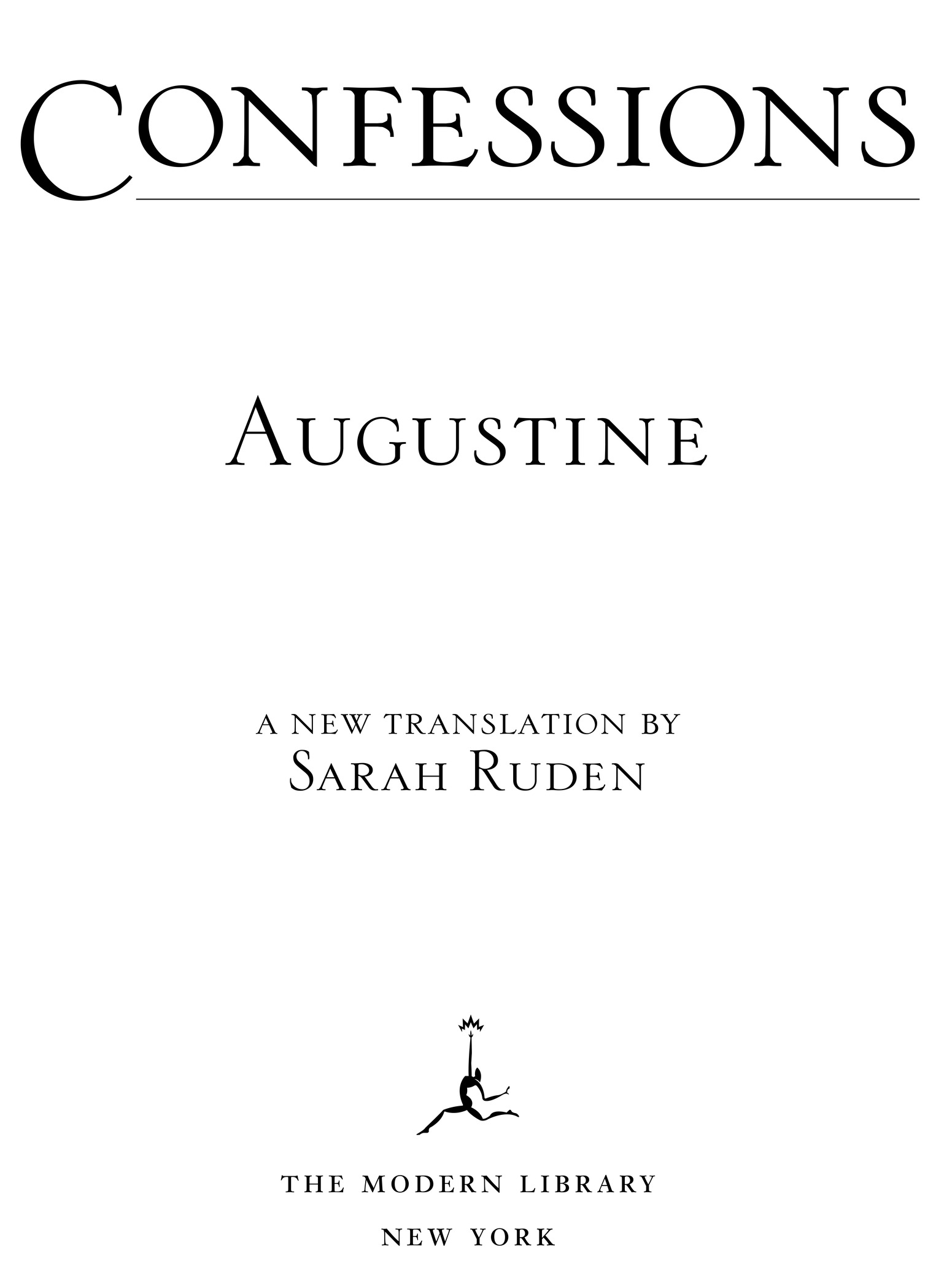2017 Modern Library Edition
Translation and introduction copyright 2017 by Sarah Ruden
All rights reserved.
Published in the United States by Modern Library, an imprint of Random House, a division of Penguin Random House LLC, New York.
Grateful acknowledgment is made to the National Review for permission to reprint Translators by Sarah Ruden (National Review, December 31, 2009), copyright 2009 by National Review, Inc. Reprinted by permission.
M ODERN L IBRARY and the T ORCHBEARER colophon are registered trademarks of Penguin Random House LLC.
Library of Congress Cataloging-in-Publication Data
Names: Augustine, Saint, Bishop of Hippo, author. | Ruden, Sarah, translator.
Title: Confessions / Augustine; a new translation by Sarah Ruden. Other titles: Confessiones. English
Description: First edition. | New York: The Modern Library, [2017] | Translation of Confessiones. | Includes bibliographical references.
Identifiers: LCCN 2016033647 | ISBN 9780812996562 | ISBN 9780812996579 (ebook)
Subjects: LCSH: Augustine, Saint, Bishop of Hippo. | Christian saintsAlgeriaHippo (Extinct city)Biography. | Catholic ChurchAlgeriaHippo (Extinct city)BishopsBiography. | Hippo (Extinct city)Biography.
Classification: LCC BR 65. A 6 E 5 2017 | DDC 270.2092 [ B ]dc23 LC record available at https://lccn.loc.gov/2016033647
Ebook ISBN9780812996579
randomhousebooks.com
modernlibrary.com
Cover design: Pete Garceau
Cover photograph: Deddeda/Getty Images
v4.1
ep
Contents
Introduction
During the transition of the West from a pagan to a Christian society, two personal accounts of conversion rose monumentally, and would have vast influence on popular thinking and institutional authority. These accounts were the mid-first-century A.D. epistles, or letters, of Paul of Tarsus (which would in time be established in the biblical New Testament beside a third-person narrative of Pauls mission that makes up most of the book of Acts); and the Confessions of Augustine, bishop of Hippo Regius (a Roman provincial city within the territory of present-day Algeria), written at the very end of the fourth century.
The shattering conversion of Paul, who was from the Jewish Diaspora but attached to the Jerusalem Temple, changed him from a persecutor of the earliest Christians on behalf of fellow Jews to the main early propagator of what was to be the Christian church in Europe. Augustine was born in North Africa, into a mixed pagan-Christian household, and in early adulthood he moved to Italy to further his career as a rhetor, an entrepreneur or state functionary who used traditional pagan Roman and Greek literature to teach public speaking, at times performing in this genre himself. Rhetoric was the mainstay of Greco-Roman education, the readiest means of social mobility, and the most important nexus of politics and popular entertainment. Augustine got as far in the profession as settling in as official rhetor of Milan, the Western Imperial capital, before decisively answering a Christian calling.
His movement toward devout commitment as a follower of Christ was decades long, rather plodding and dithering, and occasionally silly, not sudden and dramatic like Pauls. But the results were perhaps no less momentous for the history of ideas and institutions. Here was a second eloquent popularizer, radical critic of the power structure, and no-nonsense proponent of order and conformity at the same time; both men emerged as public personalities at just the right time to help set Christianity on a basis that would survive tremendous shocks of history. Bothintrinsically to the kind of religion Christianity became, I would arguemade their cases most powerfully through the stories of their own lives as examples of sin and salvation.
Augustine lived (354430) during an era in which Christianity enjoyed official toleration under the Roman Imperial administrationtoleration authorized by the emperor Constantines Edict of Milan in the year 313after centuries of on-and-off persecutions, some within living memory. State support of the church was quickly established in the form of privileging laws, subsidies, and even magnificent basilica churches and deluxe editions of the complete Bible. Priests and bishops, such as Augustine was to become, evolved into de facto Imperial functionaries, particularly when the ties of the state per se weakened under violent pressures from inside and outside the Empire. However, these clerics often resisted the power of the state, calling secular officials to account, and some clerics continued to suffer for their intransigence. The recent consensus of scholars holds that there was no hard division between the pre-Constantinian pagan and the post-Constantinian Christian Roman Empire. Dissonance, conflict, and confusion prevailed for a considerable timeas Augustines life shows.
But the general movement was in only one direction: toward greater authority for the church. In Augustines own accounts, functions such as dispute resolution, economic and social patronage, and the doleas well, of course, as public ceremonycan be seen devolving more and more onto the church. Of apparently overarching influence was the Roman clientela system, a daily enacted hierarchy that shadowed and intersected the state throughout Romanized regions (which included North Africa). The churchs respectful community gatherings, fixed reciprocal duties, and charities naturally resonated with clientela as well as testifying to specifically Christian principles. Augustine depicts himself, during his rapprochement with mainstream Christianity, making formal calls on the bishop Ambrosebut having no opportunity to discuss troubling issues because of the crowds of people having business with the prelate (Confessions, book 6, chapters 3 and 4).
The church wasnt yet ideologically coercive, however; hence Augustines emphasis on voluntary conversion, his own and that of others. Nor did he consider the church anything like what we would call the establishment. In fact, Augustine makes very clear in his climactic treatise, The City of God, his opposition to any such regime. In the earlier Confessions, he stresses that the crucial choice of his own life was not to acquire wealth and power through the old means of forensic and display oratory, marriage alliance, and public administrative appointments. It may seem odd to many modern readers that he considered marriage incompatible with the highest kind of Christian life, but this makes more sense in light of contemporary facts. The church did not preside over marriages to the extent it now does: the essential legal, financial, and social arrangements were all holdovers from pagan culture. This left a spiritual and psychic gap in which a rather extravagant cult of virginity and celibacy could flourish, so that aspirants like Augustine and his friends believed that they would be outranked as Christians if they lived in sexual and household partnerships. (Ironically, this was an attitude more in keeping with certain pagan philosophers, and with certain outr Christian sectarians like the Manichaeans, than with the Palestinian Jew Jesusat least on the evidence preponderating in the Gospels.)


